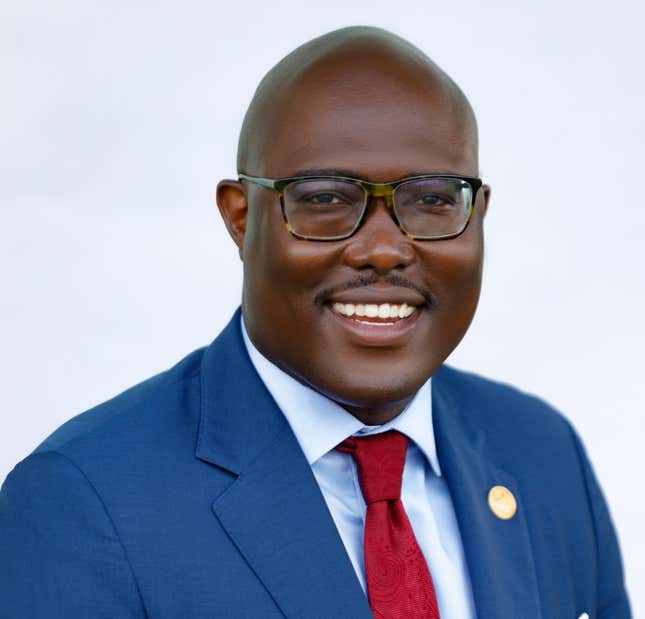
Little Rock Mayor Frank Scott Jr., sat with The Root for a Q&A following his election as president of the African-American Mayors Association. Scott, 38, took over leadership of the eight-year-old, 106-member group on April 29, and is Little Rock’s first popularly-elected Black mayor. The original interview broached how Scott and other Black mayors are tackling the ongoing impact of Covid-19 on Black communities, balancing police reform with slowing a spike in gun violence and how local government can strengthen the Black middle class.
But before that interview could run, a white supremacist murdered 10 people in Buffalo, whose mayor, Byron Brown, is one of Scott’s members. Scott spoke again with The Root by phone in the hours after the tragedy, detailing his conversation with Brown and how Black mayors are responding to the threat of racist extremists. The interview has been edited for length and clarity.
The Root: Have you talked to Mayor Brown in Buffalo already, and what was your message to him?
Mayor Scott: My first step was to send him a text message and to send him prayers for the impact of Black families. What happened is despicable. We have to eradicate racism.
TR: How is he managing what happened in his city?
MS: It’s tough, but he knows it’s his job to protect the safety, health and welfare of his residents. He’s going to put more police presence in communities to help people feel safe, and after making sure that public safety, his top priority is going to be to get Tops (the supermarket where the shooting occurred) back open to show that his city can’t be stopped by a racist.
TR: What was your response, personally, to what happened?
MS: It’s infuriating. It causes some great indignation to see a man wake up and drive 200 miles with an intent to kill Black people. It’s 2022.
TR: Realistically, aren’t there limits to what a mayor can do with municipal government and law enforcement to prevent something like this? Are any of your mayors talking more about gun control?
MS: Our statement didn’t address gun control whatsoever. This was a Black issue, a racism issue. This man drove 200 miles to come to a Black neighborhood to kill. He could have had a very legal gun [Note: police have said that the shooter legally purchased the weapon used in the shooting]. He’s in New York, it’s a very left-leaning state.
Mayor Brown is for sensible gun laws, as am I. But what happened Saturday was not about gun laws, it was about racism and inequity.
TR: Explain that.
MS: Racism isn’t genetic, it’s taught. So the way that we step up as mayors is focusing on systemic and institutional inequities that create racism. We as Black mayors have to double down to address systemic racism and inequities in economics, in education and in our environment.
TR: Does that mean this tragedy puts an even greater burden on Black mayors to push for progress?
MS: We as black mayors have different experiences and different perspectives. We have greater challenges and we’re dealt with differently as it relates to our constituencies. But when we’re saddled with despair, we still wake up the next day and get the job done.

